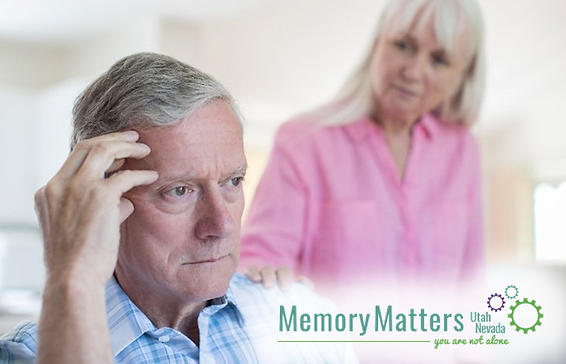Stress is contagious. Observing another person in a stressful situation can be enough to make our own bodies release the stress hormone cortisol. If a caregiver is anxious due to care decisions or work-related stress, they likely bring that anxiety home.
We all live with a certain amount of worry, much of which is caused by fear of the unknown. Since health issues can change without warning, caregivers and the people they care for often live with elevated levels of anxiety. This can be detrimental, not only to the person who is suffering from these feelings of apprehension and concern, but it also affects those around them.
For example, if a caregiver is anxious due to care decisions or work-related stress, they likely bring that anxiety home in some form and unintentionally transfer some of it to the person they are caring for. Many caregivers try to hide their worries from family members, but this feat is easier said than done. Tension and inner turmoil can be detected and transferred by subtle cues like body language and tone of voice.
You may think you are putting on a brave and happy face for your loves ones, but your care recipient can probably sense that something is wrong. Consequently, an elder’s own anxiety levels may rise. Even seniors with dementia can pick up on a caregiver’s negative emotions, although they may not be able to fully understand where they stem from. This ambiguity may cause a care recipient (with or without dementia) to internalize these feelings and believe that they are the cause of their caregiver’s grief.
Regardless of what is fundamentally causing feelings of stress (work, marital strain, finances, etc.), these emotions can quickly get out of hand. Worry is contagious and can start a dangerous feedback loop that damages one’s relationships, productivity, and physical and mental health.
How to Break the Cycle of Anxiety
While extreme cases may call for the expertise of a therapist or primary care physician, there are steps that caregivers can take on their own to lower their anxiety levels. In turn, they may have a beneficial impact on their care recipients. Use some of the following techniques to decompress and minimize the effect of stressors in your life.
- Accepting the reality of your situation can work wonders for your mental state. Acceptance doesn’t mean that you like the way things are going currently, it simply means that you are not mentally fighting against them. Caregivers can take a bit of advice from the well-known Serenity Prayer by accepting the things they cannot change, gathering the courage to change the things they can, and finding the wisdom to know the difference between these two. Keep in mind that embracing the countless challenges of life and caregiving with a level head takes practice for many people. Don’t feel discouraged if you aren’t able to immediately accept everything on your plate with a smile. Just focus on the goal of not creating more anxiety for yourself by refusing to stress over things that aren’t in your control.
- Journaling is a cathartic and low-cost activity that helps many people express and examine their emotions. When we write down our feelings for our eyes only, we can be totally honest without fear of judgement. Putting our negative emotions on paper can take away some of their power and reduce their ability to generate even more damaging feelings like guilt and anxiety. Journaling about positive experiences is important, too, as it can remind you to embrace gratitude and help you achieve a more balanced attitude in your daily life.
- Learn to forgive yourself for perceived shortcomings in caregiving and other areas of your life. When journaling, you may uncover some issues that you can improve upon. Other problems may stump you. Remind yourself that, while you may have flaws, you are giving your very best. If there is something you feel you can improve upon, talk to another caregiver or a professional counselor or join a Support Group to see how to go about developing stronger skills.
- Take care of yourself by eating well and exercising. Study after study tells us that prioritizing our physical health can have a beneficial impact on our mental health and vice versa. Following through can be a challenge, but, again, just do your best. Stressing over an unrealistic diet and exercise schedule will only work against you in the long run.
- Breathe. Have you ever noticed that when you are very, very anxious you are barely breathing? In fact, symptoms of an anxiety attack include shortness of breath. When you feel your anxiety beginning to overwhelm you, try this simple breathing exercise recommended by Dr. Andrew Weil: Exhale completely through your mouth, making a whoosh sound. Close your mouth and inhale quietly through your nose to a mental count of four. Hold your breath for a count of seven. Exhale completely through your mouth, making a whoosh sound for a count of eight. This is one breath. Now repeat the cycle three more times for a total of four mindful breaths to help you feel refreshed.
- Meditation and/or prayer can be very helpful in managing stress. People of faith find great relief from anxiety by praying. Meditation can also be a form of prayer or it can be a period of quiet where a person focuses on achieving mental clarity and calmness.
- Find something you enjoy and make it a part of your routine. This is one of my suggestions that results in the most eye rolling from caregivers. How are busy caregivers supposed to find time for a break? I agree that it’s not always possible to find the time to do everything you’d like to do, but setting aside even twenty minutes of me-time a day can give you a greater sense of self and peace. If you have a beloved hobby or pastime, don’t let it disappear from your life because you’re feeling overburdened. You may have to cut back for a time, but don’t drop it completely. Indulging yourself a bit will help you feel less trapped by the needs of others. So, take that relaxing bath, set aside some time for cooking, knitting or gardening, or commit to walking in the park once a week. You deserve it.
How to Minimize Anxiety in Seniors
Most of the suggestions above are for family caregivers. Here a few tips to help your care receiver feel less anxious, which, in turn, should cycle back to benefit you as well.
- Try to keep their environment calm and pleasant.
- Stick to a routine.
- Make sure your loved one has plenty of one-on-one attention so they feel safe and loved.
- Don’t argue with someone with dementia. Learn to use approaches like validation and redirection to handle difficult behaviors.
- Treat your loved one as an adult and a whole person. No matter how many health issues a senior has, they always deserve to be treated with respect and dignity.
It’s likely that few people will want to follow all these suggestions, but please try to be open-minded. If even one of these small adjustments could measurably affect your anxiety level and cycle back to your care receiver, then it is well worth the effort.
Memory Matters Utah/Nevada offers caregiver support groups in St. George, UT and Mesquite, NV. For more information contact our office at: (435) 319-0407 or email at: janet.labrum.mmu@gmail.com

